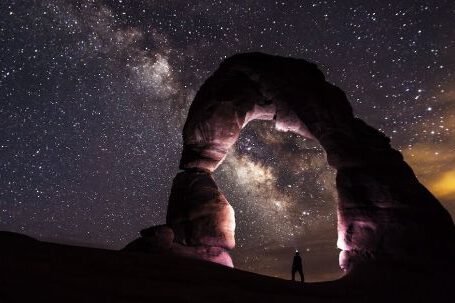The universe is full of mysteries that continue to baffle scientists and astronomers. One of the most enigmatic phenomena is dark energy. Despite its mysterious nature, dark energy is believed to play a significant role in the expansion of the universe. In this article, we will explore the mysteries surrounding dark energy and delve into the ongoing efforts to understand this perplexing force.
The Discovery of Dark Energy
The existence of dark energy was first proposed in the late 1990s when astronomers were studying the expansion rate of the universe. They expected that the expansion would be slowing down over time due to the gravitational pull of matter. However, to their surprise, they discovered that the expansion was accelerating. This unexpected finding led to the hypothesis of dark energy, a force that counteracts gravity and causes the universe to expand at an accelerating rate.
The Nature of Dark Energy
Dark energy is a term used to describe the unknown force that is driving the accelerated expansion of the universe. It is believed to comprise around 68% of the total energy in the universe, with dark matter accounting for approximately 27% and ordinary matter making up the remaining 5%. Despite its prevalence, dark energy remains elusive and poorly understood.
Theories and Explanations
Several theories have been proposed to explain the nature of dark energy, but none have been widely accepted. One possibility is that dark energy is a property of space itself, known as vacuum energy or the cosmological constant. According to this theory, empty space is not truly empty but contains a constant energy density that drives the expansion of the universe.
Another theory suggests that dark energy is a manifestation of a new type of fundamental particle, often referred to as quintessence. Quintessence would possess unusual properties, such as negative pressure, which would cause the expansion of the universe to accelerate.
The Impact on the Universe
The presence of dark energy has profound implications for the fate of the universe. If the expansion continues to accelerate, as current observations suggest, it could lead to a future where galaxies drift apart from each other at an ever-increasing rate. Eventually, the universe could become a cold and desolate place, with all stars and galaxies moving beyond the observable horizon.
The Search for Answers
Understanding the mysteries of dark energy is one of the biggest challenges in modern cosmology. Scientists are using a combination of observational data, theoretical models, and sophisticated experiments to shed light on this enigma. Projects such as the Dark Energy Survey and the European Space Agency’s Euclid mission aim to map the distribution of dark energy in the universe and provide valuable insights into its nature.
Conclusion: The Quest Continues
Despite decades of research, the true nature of dark energy remains elusive. Scientists are continuously striving to unravel its mysteries and gain a deeper understanding of the forces that shape our universe. As new observations and experiments are conducted, we inch closer to solving this cosmic puzzle. The quest to understand dark energy not only expands our knowledge of the universe but also challenges our perception of reality and our place within it.





